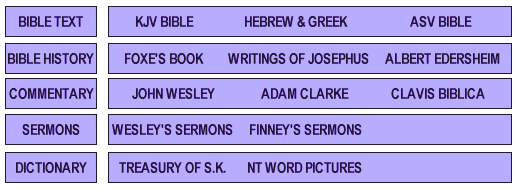

CHAPTER III
The altar of burnt-offerings is set up, 1-3. They keep the feast of tabernacles, 4-6. They make provision for rebuilding the temple; and lay its foundation in the second month of the second year, 7, 8. Ceremonies observed in laying the foundation, 9-11. Some weep aloud, and others shout for joy, 12-18.
NOTES ON CHAP. III
Verse 1. When the seventh month was come] The month Tisri, which answers to the latter part of our September, and beginning of October. It seems that the Israelites had left Babylon about the spring of the year; that on their arrival at Jerusalem they constructed themselves huts and sheds to lodge in among the ruins, in which they must have spent some months.
After this they rebuilt the altar of burnt-offerings, and kept the feast of tabernacles, which happened about this time, and continued to offer sacrifices regularly, as if the temple were standing.
Verse 2. Jeshua the son of Jozadak] He was grandson of Seraiah the high priest, who was put to death by Nebuchadnezzar, 2 Kings xxv. 18, 21. This Jeshua or Joshua was the first high priest after the captivity.
Verse 3. They set the altar upon his bases] Rebuilt it on the same spot on which it had formerly stood. As it was necessary to keep up the Divine worship during the time they should be employed in re-edifying the temple, they first reared this altar of burnt-offerings; and all this they did, "though fear was upon them," because of the unfriendly disposition of their surrounding neighbours.
Verse 4. They kept also the feast of tabernacles, as it is written] This began on the fifteenth day of the seventh month; but they had begun the regular offerings from the first day of this month, chap. iii. 6. And these were religiously continued all the time they were building the temple.
Verse 7. They gave money also] They copied the conduct of Solomon while he was building his temple; see 1 Kings v. 11. He employed the Tyrians, gave them meat and drink, &c.; and this permission they now had from Cyrus.
Verse 8. In the second year] The previous time had been employed in clearing the ground, felling timber, hewing stones, and transporting them to the place, and making other necessary preparations for the commencement of the building.
Verse 10. After the ordinance of David] With psalms which he composed, acting in the manner which he directed.
Verse 12. Wept with a loud voice] They saw that the glory had departed from Israel; in their circumstances it was impossible to build such a house as the first temple was; and had this been even possible, still it would have been greatly inferior, because it wanted the ark of the covenant, the heavenly fire, the mercy-seat, the heavenly manna, Aaron's rod that budded, the Divine shechinah, the spirit of prophecy, and most probably the Urim and Thummim.
Many shouted for joy] Finding they were now restored to their own land, and to the worship of their God in his own peculiar city: these, in general, had not seen the original temple; and therefore could not feel affected in that way which the elderly people did.
The sight must have been very affecting: a whole people, one part crying aloud with sorrow; the other shouting aloud for joy; and on the same occasion too, in which both sides felt an equal interest! The prophet Haggai comforted them on this occasion by assuring them that the glory of this latter house should exceed that of the former, because the Lord (Jesus Christ) was to come to this temple, and fill it with his glory. See Haggai, Haggai ii. 1-9.
GOTO NEXT CHAPTER - COMMENTARY INDEX & SEARCH
